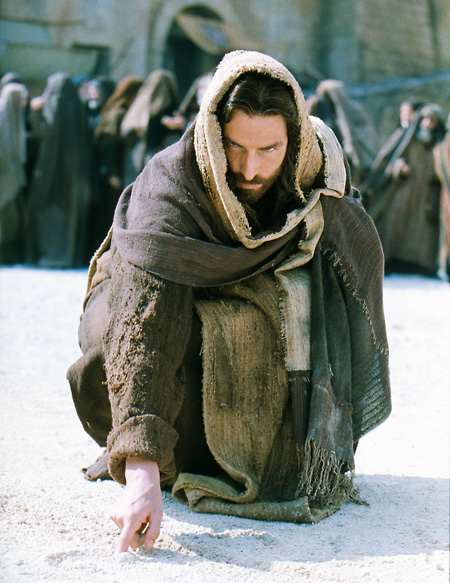 This weekend we celebrate the Fifth Sunday of Lent. Next week we will intensify our Lenten observance by entering into the holiest week of the Church year, beginning with Palm Sunday and culminating in the Great Easter Vigil. For this week, however, the Church invites us to reflect on a well known passage from John’s Gospel—the woman caught in adultery.
This weekend we celebrate the Fifth Sunday of Lent. Next week we will intensify our Lenten observance by entering into the holiest week of the Church year, beginning with Palm Sunday and culminating in the Great Easter Vigil. For this week, however, the Church invites us to reflect on a well known passage from John’s Gospel—the woman caught in adultery.
I will always remember my New Testament professor, Fr. Jack Castelot, who, after reading to us this passage, asked, “The woman caught in the very act of committing adultery, by herself? Where was the man?” This question, of course, led to a lively discussion on the rights of women in the ancient near East and what we can extrapolate from the passage and apply it to the current day.
Indeed, where was the man? The fact is, this woman was targeted (or perhaps even set-up) in an effort to advance the agenda of the scribes and Pharisees. They were using her as a test case to entrap Jesus. And what is his response? Doodling. Many theories abound about what Jesus was writing in the sand (and we will never know what he wrote), but the one that seems to make the most sense to me is that he was drawing shapes or objects. He was acting like a bored student who draws in his or her notebook as the teacher drones on about some obscure point in history or social studies.
Jesus saw through their game and turns the tables on them by noting that the one without sin may cast the first stone. Of course none did, because every person has sinned at one time or another. I often tell my students that Jesus never condemns sinners; rather, he exhorts them to repentance and conversion.
Today’s passage is a perfect example: “Neither do I condemn you. Go, and from now on do not sin any more.” In the remaining weeks of Lent, we should remind ourselves that God does not condemn us. Rather, God calls us into relationship and invites us to repentance. Every day is a new beginning. Just as he gave the woman a new lease on life, so too does God afford us the opportunity to move forward. We can choose to be enslaved by our past actions or we can recognize that God has liberated us in order that we can move forward toward our goals. St. Paul put is so eloquently when he states,
Just one thing: forgetting what lies behind, but straining forward to what lies ahead, I continue my pursuit toward the goal, the prize of God’s upward calling, in Christ Jesus.








